Devoted to a Focus on Clinical Practice
Program Overview
Carlow University’s PsyD program in Counseling Psychology is dedicated to training skilled depth-oriented counseling psychologists who are committed to social justice. The program is designed to prepare students to work in diverse settings and communities, with a focus on promoting positive change and addressing social inequalities. The program emphasizes evidence-based psychodynamic and depth-oriented approaches in counseling psychology as well as the biological, affective, cognitive and social bases of behavior. We provide students with rigorous training in assessment, diagnosis, intervention, and consultation for individuals, groups, communities, and organizations. Through a combination of coursework, practicum experiences, and research opportunities, students develop the knowledge and skills needed to become effective practitioners.
At the heart of the program is a commitment to social justice, which is reflected in both the curriculum and the overall approach to training. Students are exposed to a wide range of social issues and are encouraged to critically examine their own beliefs and biases. They are also trained to work with individuals and groups from diverse backgrounds, and to address social and systemic factors that may be contributing to psychological distress. The program emphasizes the development of ethical and culturally humble practitioners who are able to work collaboratively with other professionals and community organizations.
Students have the opportunity to work with faculty members who are experienced practitioners and researchers in the field, and to engage in a range of professional development activities. Overall, Carlow University’s PsyD program in Counseling Psychology provides students with a comprehensive depth-oriented and socially responsible education.
The program was granted accreditation by the American Psychological Association (APA) in July 2011 and was re-accredited according to the standard seven-year interval in the fall of 2018. The program is currently accredited for the maximum of 10 years, with a 2028 return visit expected from APA.
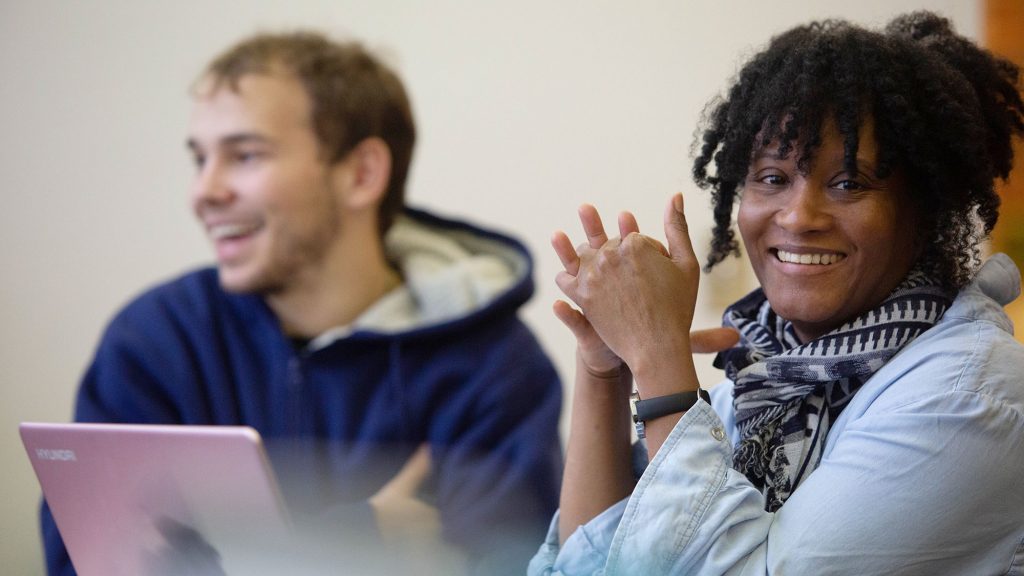
Credits required:
93 credits
Cost per credit:
$1,192/credit
Time to degree:
As few as 48 months
Delivery:
On campus, some online
Doctorate of Psychology Curriculum
Training Model: Practitioner-Scholar
The Doctoral Program in Counseling Psychology at Carlow University is implemented through the practitioner-scholar model of training and the Doctor of Psychology (PsyD) degree is conferred.
The program prepares Counseling Psychologists to apply knowledge grounded in psychological science and theory in support of clinical practice. Specifically, the program is committed to training scientifically sophisticated practitioners who evaluate treatments, make informed decisions, understand the limitations of scientific knowledge, and cultivate an intellectual curiosity in their professional activities.
The Doctor of Psychology (PsyD) degree focuses on training skilled clinicians who intend to be licensed and primarily practice as licensed psychologists. Applicants who are exclusively or primarily interested in assuming positions as researchers or academics are encouraged to consider more research-oriented training programs, such as those implemented through the scientist-practitioner model of training.
Quick facts
- Enroll in a top-50 doctoral program
- Learn through emphasis on social justice values
- Take advantage of practicum relationships with agencies in the Pittsburgh region

Career Opportunities for Doctor of Psychology
Counseling psychologists work in private practice, community agencies and college counseling centers and in research positions. Others work as part of a team, collaborating with physicians and social workers, or in school settings working with students, teachers, parents and other educators.
Employment of psychologists is projected to grow 19% from 2014 to 2024, according to the U.S. Bureau of Labor Statistics. Job prospects should be best for those who have a doctoral degree in an applied specialty.

Accreditation
Carlow University’s doctoral program in Counseling Psychology (PsyD) has had its accreditation reaffirmed by the American Psychological Association’s (APA) Commission on Accreditation. The next site visit to be made by the commission will be in 2028.
What is the difference between Counseling Psychology and Clinical Psychology?
Training programs in Counseling Psychology and Clinical Psychology share many similarities, but historically there were key differences in their foci, goals, and the populations they served. Here’s an overview of the main distinctions between these two fields:
- Counseling Psychology: Our counseling psychology program focuses on helping individuals with everyday life challenges, personal growth, and adjustment issues. We aim to promote mental well-being, resilience, and self-actualization. Though historically, counseling psychology has placed less emphasis upon the assessment, diagnosis and treatment of individuals with severe and complex psychological disorders, our program does prepare clinicians to treat the full spectrum of psychological concerns. The primary goal of our program is to train clinicians to provide assessment, diagnosis, and treatment to help clients improve their overall functioning and quality of life regardless of the severity of their concerns.
- Clinical Psychology: Traditionally, clinical psychology programs have tended to place a greater emphasis upon psychopathology and more severe and complex psychological disorders.
Because of the historical differences between counseling and clinical psychology, a perception may linger that counseling psychologists are not well suited for work in settings that engage with more serious psychopathology, such as hospitals and prisons.
Licensure and Certification
Both counseling psychologists and clinical psychologists may pursue licensure to practice independently as licensed psychologists. The specific requirements for licensure vary by state or country but generally include completing a doctoral program, supervised clinical experience, and passing a licensing exam.

The Student Experience
University-Wide Student Support Services
Students have access to a wide range of support services including Wellness and Fitness Services, The Office of Career Development, Financial Aid, and the Center for Academic Achievement
Counseling Psychology Doctoral Student Association
The primary purpose of the Counseling Psychology Doctoral Student Association (CPDSA) is to offer students a structured way to connect around issues of shared importance and advocate for their interests and concerns. Early during each spring semester, students will elect three representatives (one from each cohort) to serve on the Counseling Psychology Doctoral Student Association Council of Representatives. Student representatives are invited to attend formally scheduled program faculty meetings and are encouraged to report to the CPDSA a summary of the meetings.

Student Mentor (Buddy) Program
In the summer before first-year doctoral students begin their training, all students are matched with a more advanced doctoral student in the program. The seasoned students assist the new students in helping orient them to the Pittsburgh region and in navigating the rigors of advanced graduate studies in psychology.
Program Director, Clinical Coordinator, & Academic Advisors
The Program Directors, Clinical Coordinator, and Academic Advisors are faculty members who support student learning and growth during doctoral level training. Students should feel free to approach the Program Directors, Clinical Coordinator, PsyD Core Faculty, or their Academic Advisors for guidance with academic or professional issues at any point during their training.
Internship Application Preparation Seminar
An informal seminar is provided for students applying for internship by the Clinical Coordinator. It takes place the fall term during which applications are submitted. Under faculty mentorship and through peer support, students are provided with an overview of the internship application process and helped with preparation of their curricula vitae and cover letters.
Technological Support
The Carlow Information Technology Department provides a broad range of technology services for all members of the Carlow community. Information technology staff is available for student, staff and faculty support and free, non-credit computer courses for all members of the community are offered regularly. There are 10 student computer labs located across campus, and most classrooms are classified as “smart classrooms.”
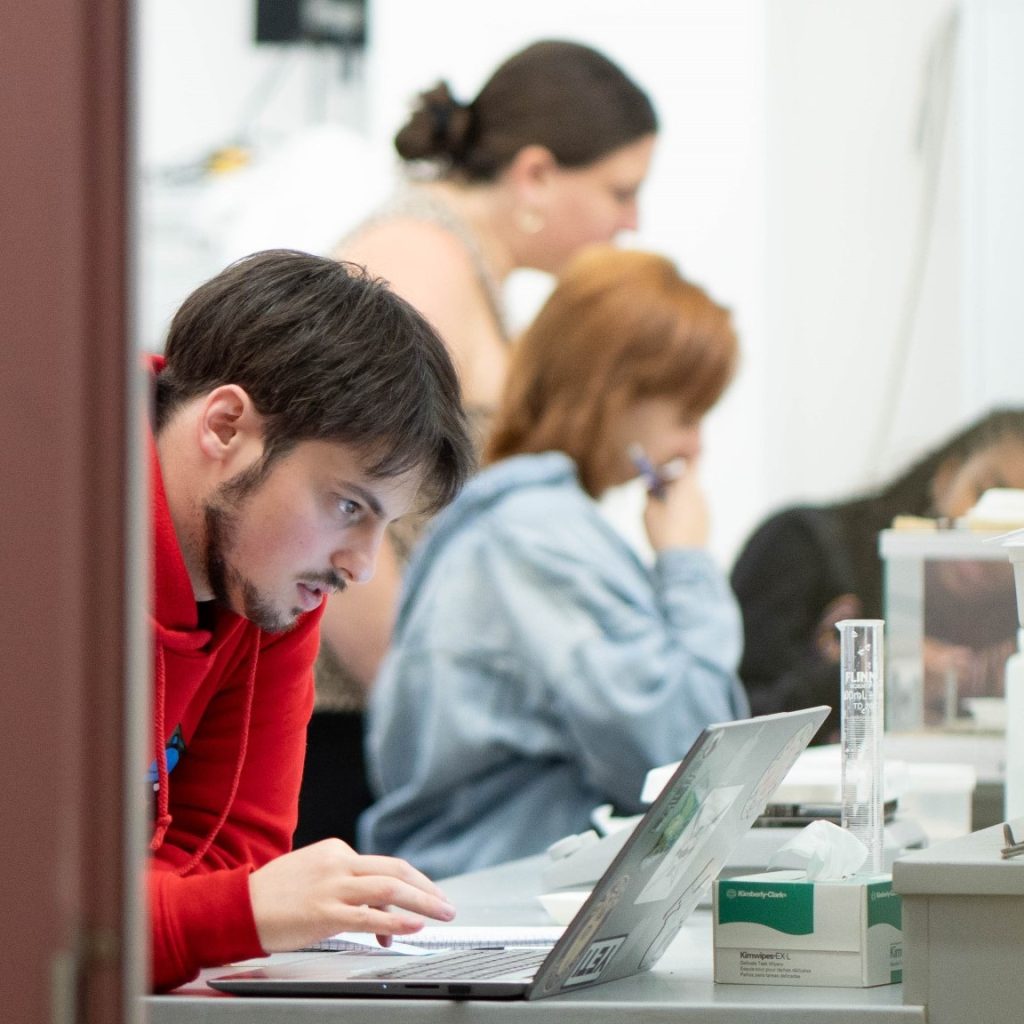
Program Resources
As a PsyD student, you will have access to a wide range of resources in support of enhancing the clinical training experience. The campus is well equipped with regard to technology and the doctoral program has discipline-specific material to augment student learning in the practice of psychology.
Student Funding
Currently two to four graduate assistantships (GA) are offered each year and are typically reserved for first year students. Graduate Assistants provide administrative and research support to program leadership and teach one undergraduate course. Graduate Assistants receive an annual stipend and tuition remission for 6 credits in both the fall and spring semesters.
Courses are offered in the evening to accommodate students who must work part-time while pursuing the doctoral degree. Since all Program students have a master’s degree in counseling or a closely related field, many are involved in the provision or supervision of psychological care in relation to their employment.
Students working on their dissertation are eligible to apply for up to $400.00 each to defray associated expenditures.

Physical Facilities
While the program has access to the physical facilities of the University across campus, the Counseling Psychology program is housed in Antonian Hall. Antonian Hall is adequately equipped with smart-classrooms and wireless internet access. The program itself is on the fifth floor where faculty offices are in close proximity to student work space and the student lounge, which allows for regular interactions among those in the program community. The student lounge is equipped with three computers and access to a copier/scanner, as well as a microwave and a refrigerator.
Training Materials and Equipment
In support of training in psychological assessment, students have access to over 60 different personality, achievement, and intellectual instruments, many of which include multiple copies to ensure availability.
The main campus library collection is housed on three floors of the newly updated University Commons building in the heart of campus and the library also offers an extensive collection of virtual resources. On campus, space is available for both quiet study and group meetings. Reference Librarians are available during most library hours to offer the students one-on-one reference assistance.
Internship Application Preparation
All students are required to participate in the APPIC Match which takes place the of third year of study. An informal seminar is provided for students applying for APPIC Match internship by the Clinical Coordinator.
Under faculty mentorship and through peer support, students are provided with an overview of the internship application process and helped with preparation of their curricula vitae and cover letters.
The APPIC Internship Match is a national placement process that will necessitate a relocation. Practically speaking this means that you will need to plan to relocate for your internship year.
Practicum Training
The program has established relationships with a significant number of agencies in the greater Pittsburgh area. These training sites are varied with regard to population served and services provided, thereby affording students access to rich clinical experiences. Examples of training sites include hospitals, college counseling centers, community and rural mental health practices, private practices, and specialty sites focusing on forensic and neuropsychological practice.
Pennsylvania regulations that went into effect on August 12, 2019, now permit doctoral psychology students to count practica hours in lieu of post-doctoral hours, if a total number of pre-doctoral hours are achieved. To facilitate direct entry into psychological practice as per Pennsylvania regulations that went into effect on August 12, 2019, now permit doctoral psychology students to count practica hours in lieu of post-doctoral hours, if a total number of pre-doctoral hours are achieved. To facilitate direct entry into psychological practice as per Pennsylvania state regulations, Carlow University’s PsyD program in counseling psychology requires 18 credits of practicum training (6 semesters of practicum seminar assuming 3 credits are earned each semester of practicum seminar). This will total 1800 hours of direct and indirect field placement experience. Typically, a single commitment to a practicum training site experience is a year-long (three semesters: summer, fall, and spring).
Students are strongly discouraged from planning to work full-time while they complete the doctoral program. Many students who have worked full-time during their bachelor’s or master’s level training believe they will be able to do so with their doctoral training experiences, however, doctoral level training is much more demanding than bachelor’s and master’s level training. Nearly all students who attempt to work full-time after commencing practicum training in the summer of the first year find that they cannot meet the 50+ hours per week expectation of training and simultaneously maintain full-time employment.
International Training Opportunities
Currently, the Doctoral Program in Counseling Psychology at Carlow University offers opportunities for international study in Ireland and Uganda.
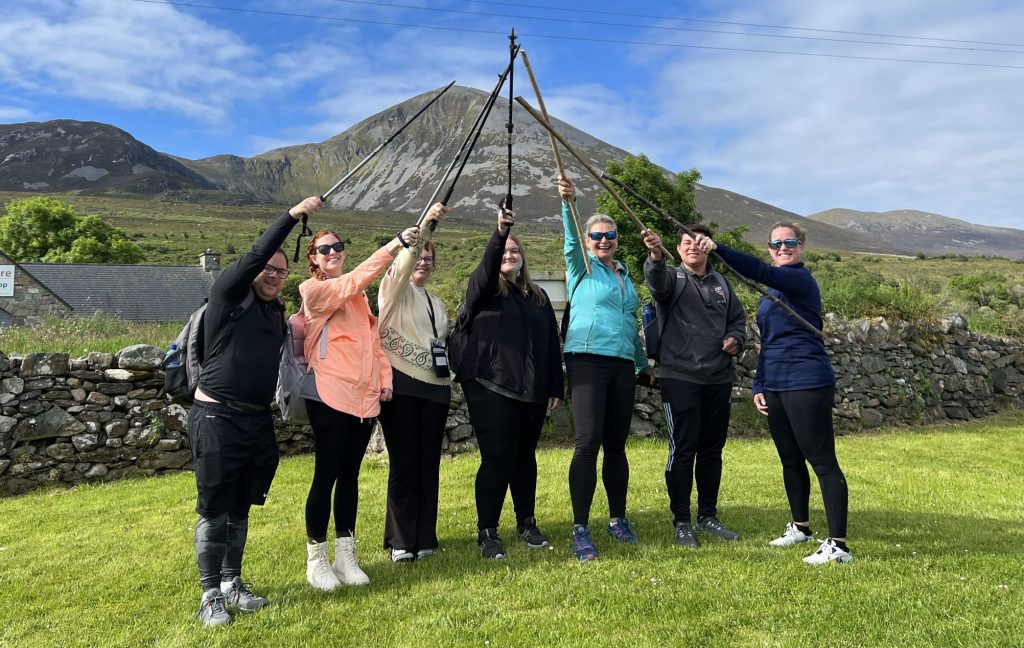
IRELAND
This one-week program is designed jointly by faculty from Carlow University and St. Angela’s College in Sligo, Ireland. Students learn about the mental health system in Ireland and about the content and process of service delivery to those with special needs. In addition, students explore issues related to diversity and social justice within the Irish culture and how they relate to psychosocial functioning and mental health. The trip is further characterized by exposure to a different culture through touring and educational outings. The course includes readings that are to be completed prior to departure, full participation in activities in Ireland and a major paper or project.
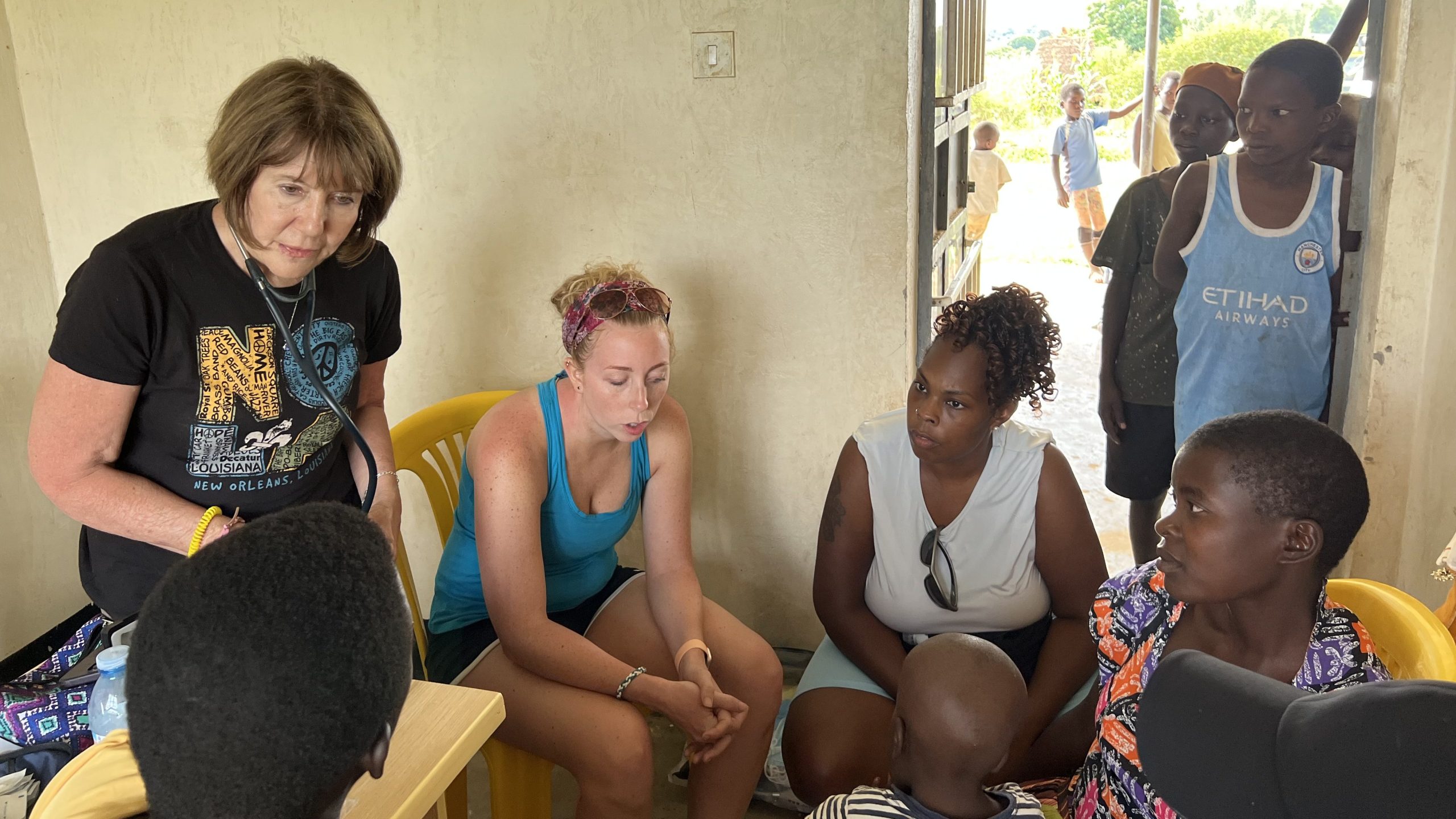
UGANDA
Doctoral students can participate in a number of ways in the collaborative work being done by Ugandan citizens and Carlow faculty.
Initiative 1
Counseling, Trauma and Gender Based Violence Training
This initiative is being carried out with Carlow faculty and doctoral students in collaboration with Advocacy for Vulnerable Children’s Rights (AVCR). According to annual crime statistics by the Uganda Police, domestic violence and sexually related offences account for a significant proportion of complaints received by law enforcement. Those studying or otherwise interested in this social problem attribute domestic violence in the country (most notably violence against women) to culture and tradition. The Uganda government struggles to provide an infrastructure to meet the needs of its citizens which means that not unlike many societies, change must begin at the grassroots level.
Collaboratively established goals include: Mobilizing and engaging community members (e.g., women, men, local institutions, and policy makers in the region) to collaboratively determine how they may be involved in creating a movement in their region to promote more safe and equitable relationships, provide psychoeducation through a series of ongoing lectures and discussion groups about safe relationships/gender violence, create and implement an advertising campaign (through the very popular use of radio) about the dangers of gender violence, and to create a Uganda-culture specific school-based curriculum to propose to regional schools.
Initiative 2
Human Trafficking Uganda: Community-based Collaboration in Support of Prevention of Trafficking and Survivor Identification.
This initiative is being carried out through in collaboration with the Ugandan government and citizens. Two regions were identified as the initial focus of the work of this project; the Mukono District and Soroti.
Overarching goals are to increase the extent to which citizens are able to decrease vulnerability to trafficking by: Increasing regional awareness about the issue, increasing self-sufficiency, and increasing accessibility of school, especially for girls.
Initiative 3
Strengthening Community Resources in the Village of Soroti
This initiative is being carried out in collaboration with Advocacy for Vulnerable Children’s Rights (AVCR).
The primary focus at this time is the building of a health clinic.
Primary goals of the initiative are to: Increase access to education for vulnerable children in Soroti, increase ease of access to food and water, increase ease of access to health care, and decrease vulnerability to human trafficking.
What is the difference between a PhD and a PsyD degree?
For more information regarding the structure, focus, and policies of our program, please see our Program Handbook.
Admission Requirements and Application Process
Admission Requirements
Applicants to Carlow University’s Doctor of Psychology (PsyD) in Counseling Psychology program must possess a master’s degree in psychology, counseling, or a closely related field (such as social work).
The master’s degree must have been granted by a regionally accredited institution in higher education. Master’s degrees are considered closely related if they include coursework in the following areas:
- Human growth and lifespan development
- Social & cultural foundations or diversity training for helping professionals
- Helping relationships or counseling skills and techniques, counseling or personality theory
- Abnormal psychology or psychopathology
- Group counseling
- Research methods (statistics and quantitative methods)
- Psychological assessment, appraisal, or tests and measurements
- Counseling practicum and internship

Applicants who have a deficit in one or more of the areas listed above, and who otherwise would qualify for entrance into the program, may be considered for admission with the understanding that the deficit must be remedied during the first year of the doctoral program. If an applicant has too many prerequisite deficits, Carlow may need to defer application for admittance to the following year while the student completes the necessary coursework.
Preference will be given to applicants with strong academic credentials and relevant experience as a helping professional. Applicants who are finalists for admission will be invited to campus for a personal interview with representatives from the department in mid to late February of each year.
Application Process
Note: The PsyD Program in Counseling Psychology utilizes a cohort-based training model, which entails a set sequence of courses meant to be taken in an established progression over the four years of the program. Cohort based training models expect that students will take the courses required in order along with the rest of their cohort members, and do not afford students the ability to create an individualized course sequence.
Therefore, students can only start the program in the fall semester. There are no spring or summer start dates.

Apply by:
January 7
Start term:
Fall
The following is required for application to the PsyD program in Counseling Psychology:
- Choose an art track for your specific learning focus
- Two essays: one personal and one reflective
- Personal Essay – is autobiographical in nature and focuses on the applicant’s developmental history, cultural background and experiences, and explains the applicant’s reasons for pursuing doctoral studies in counseling psychology (3-6 pages of double-spaced text)
- Reflective Essay – addresses the applicant’s thoughts and understanding regarding the etiology of client distress and the nature of the change process (2-3 pages of double-spaced text).
- Current resume or curriculum vitae
- Three letters of recommendation from professionals (i.e., academics and practitioners) who can address the applicant’s suitability for doctoral study. It is in the applicant’s best interest to submit letters from those that have doctoral degrees. Still, it is expected that some letters from practitioners may be best addressed by those with Master’s degrees in a clinical field that have supervised the applicant.
Full-time Faculty
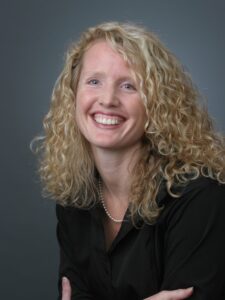
Mary C. Burke, PhD Professor, Psychology
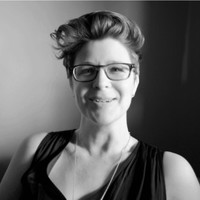
Amanda B. Lowe, PhD Assistant Professor of Psychology; Core Faculty, Assistant Program Director & Clinical Coordinator, Doctoral Program in Counseling Psychology

Joseph Roberts, PhD Professor, Department Chair, Program Director of MA in Psychology and MS in Criminology & Criminal Justice
Contact Admissions
If you are interested in this graduate program, our Admissions team is available to help you with the next steps, including scheduling an on-campus visit or attending an upcoming event.
